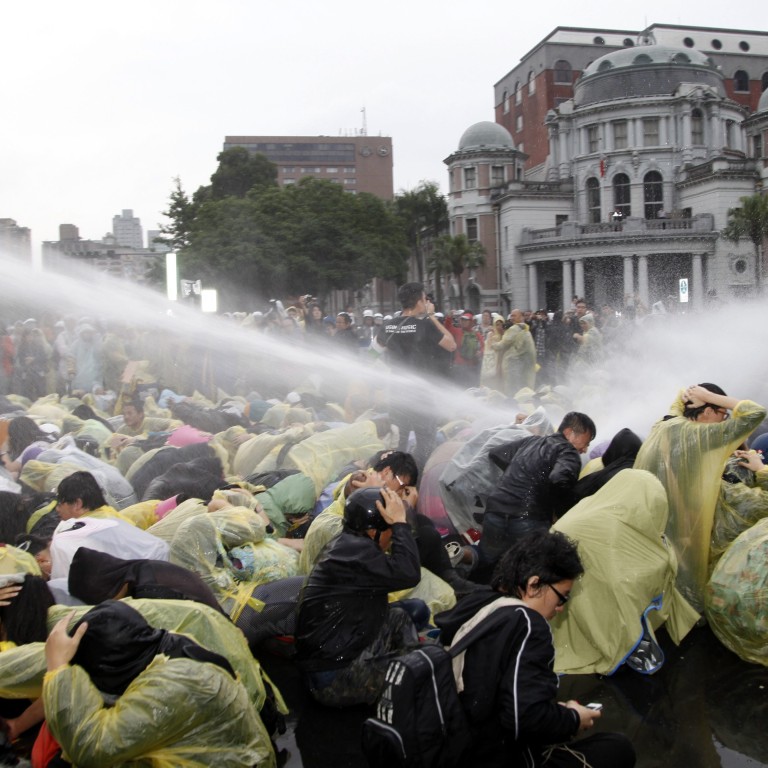
Months of protests take toll on island
Shops say rallies hurt business, students say they were the will of the people, but the voices of moderation were drowned out
Taiwan's recent student-led protests against a services trade pact with the mainland, closely followed by a series of demonstrations against a nuclear power plant project, point to widespread public distrust of the government.
While the administration of the island's president, Ma Ying-jeou, has a lot of soul-searching to do over the roots of the distrust, certain actions it took during the recent wave of protests must be scrutinised as they threaten to undermine the island's hard-fought democracy.
It all started with the illegal occupation of parliament for 24 days by a group of about 200 student. They felt it was unacceptable lawmakers from the ruling Kuomintang pushed the services trade pact to a floor vote without submitting it for line-item review.
The occupation, which began on March 18 and was supported by thousands of protesters outside parliament, succeeded in forcing Ma to make concessions and agree to a new piece of legislation to supervise future cross-strait pacts and subject them to a line-by-line review.
The leading rally organisers, Lin Fei-fan and Chen Wei-ting, were hailed for forcing Ma to agree to the protesters' terms, yet residents and shop owners in the vicinity still braced for more demonstrations.
From the start of the occupation until its April 10 conclusion, people living near parliament were subjected to noise all day, as protesters chanted slogans and confrontations took place.
Some shopkeepers complained that business suffered due to police blockades. When they complained to police, they were told to calm down; when they complained to students, they were told the protests were in the interests of the majority.
When Ma made concessions and the protests ended, shopkeepers thought their nightmare was over.
They were mistaken. Tsai Ting-kuei, a leader in the movement to change Taiwan's rules for a referendum as part of a wider opposition to the island's fourth nuclear plant, staged a round-the-clock protest outside parliament late last month. Tsai and fellow protesters demanded the number of voters needed to quash the project in a referendum be lowered.
"Back to work!" activists shouted as they prevented legislators' cars, including those from the opposition, from leaving the legislature.
Last Sunday, tens of thousands of anti-nuclear activists blocked the busiest intersection in downtown Taipei. The sit-in, an illegal act, caused traffic jams and the suspension of bus services.
Some activists brought young children to the sit-in and refused to move them to safety as police prepared to disperse the crowd with water cannons. Such callous disregard for child safety should be condemned.
People have every right to voice their objections, but they must also respect the rights of those who choose dialogue over street protests. Taiwan's democracy will be threatened if people continue to justify illegal protests as noble acts of "civil disobedience".

